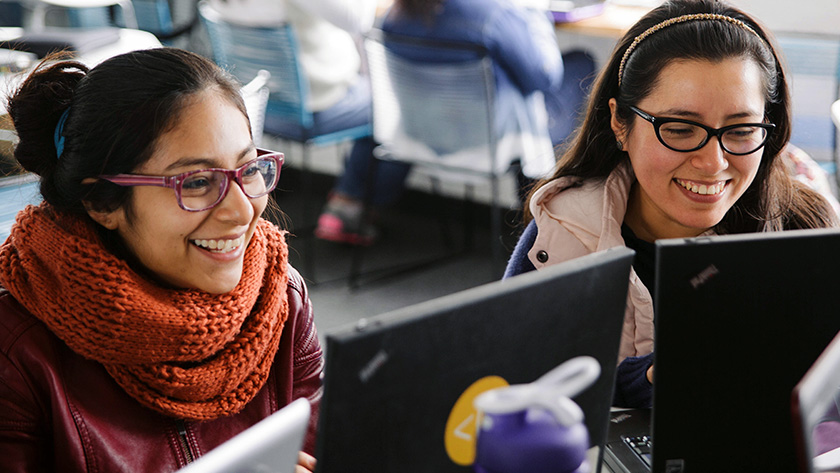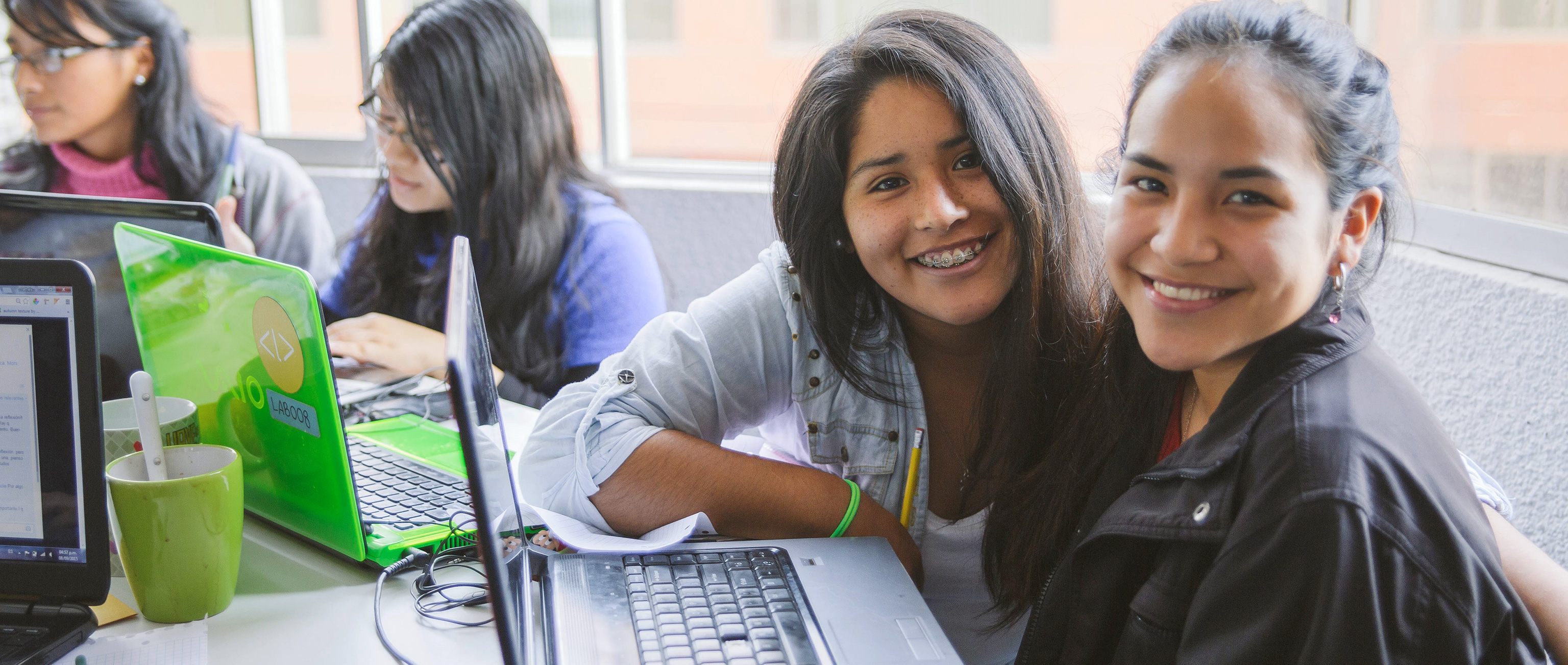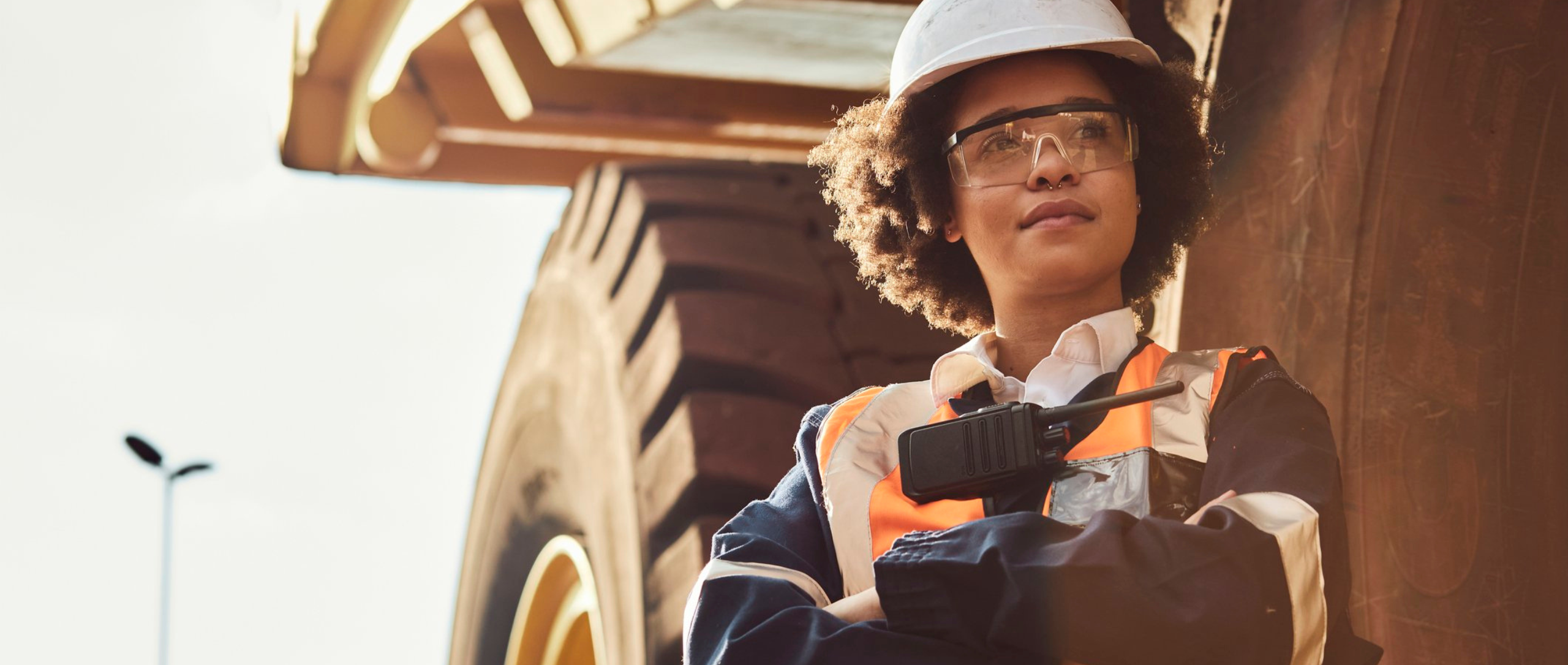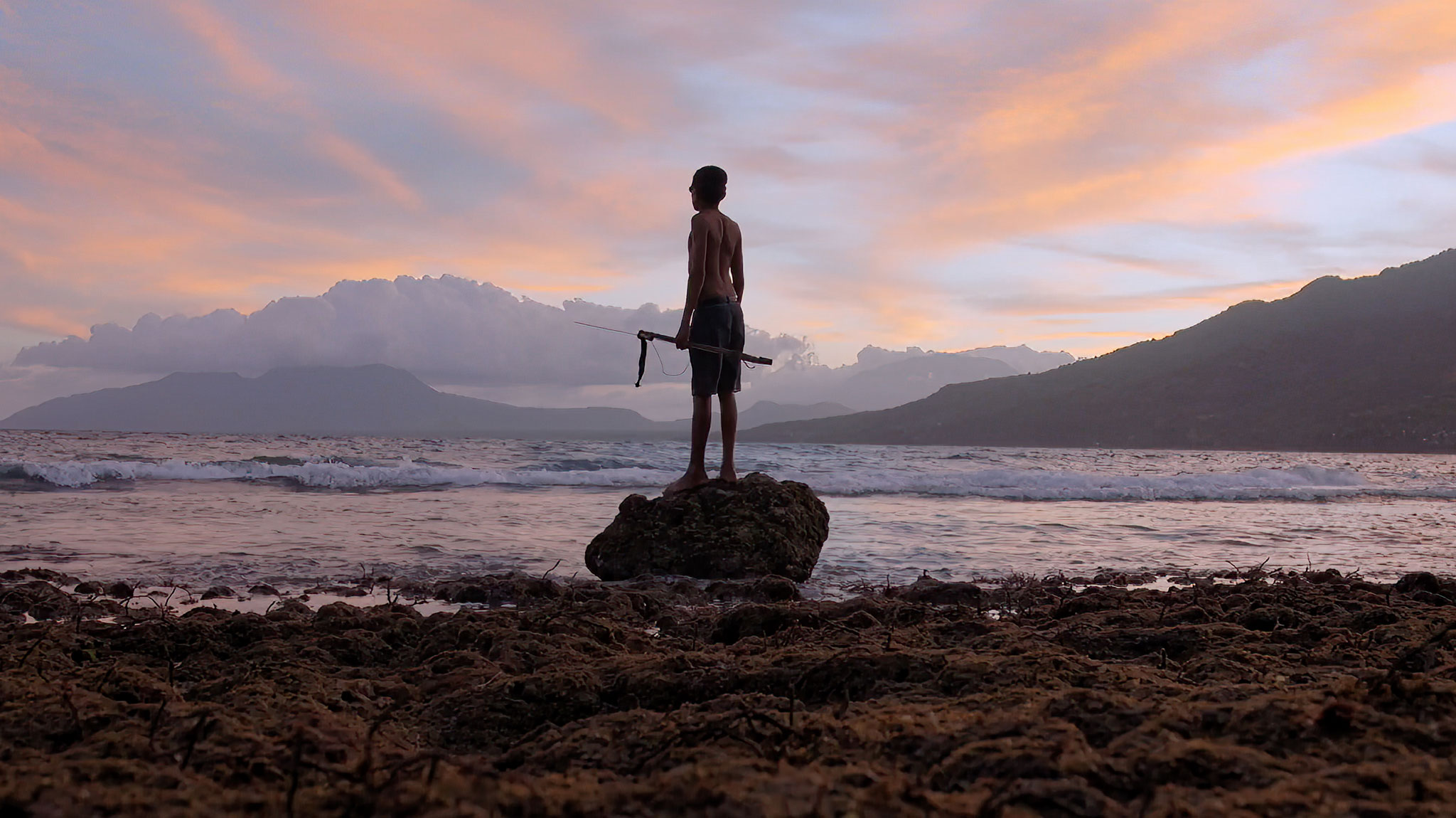A Tech Bootcamp in Peru to Close the Gender Gap
When Mariana Costa Checa was bootstrapping a software development start-up with partners in Lima several years ago, finding the right talent for the team was a challenge. There simply weren’t enough developers to meet demand, and the pool of qualified women was very small. In a team of 15, Mariana and a single graphic designer stood out as the only women. In response, Mariana launched Laboratoria, a technology bootcamp training program targeted at women without quality higher education and little-to-no experience in the growing tech sector. Half of the initial pilot group of around 15 women in Laboratoria’s first cohort were still in high school. Mariana has now helped over a thousand women find new careers and triple their income. We caught up with her on the sidelines of the Skoll World Forum, where she joined as Forum Fellow, to hear more about her work.
Zach Slobig: What can a student with no tech experience—someone who has been working as a hairdresser as one of your students had been—expect from this 6-month program?
Mariana Costa Checa: It’s a life-changing experience. It’s very intense. We have a pretty thorough selection process because of that. We also better understand what skills our applicants need to make good developers out in the workforce, so we’ve refined a lot what we look for in applicants.
It’s project-based learning. Throughout the six months, they complete around eight real-life projects that we co-design with companies. A lot of it is self-directed, peer directed. We have ingrained all the values of agile software development in the learning experience, so it’s iterative. We have ingrained values around good project planning, so before you write the first line of code, you really understand what you want to build and why, how to proceed, and how to manage your time.
We have daily standups so that you know how the rest of your team is doing, and you have a coach that’s kind of a mentor for the group. We have continuous feedback and retrospectives, but it’s challenging because you’re learning by yourself, really.
Zach: Tell me more about some of the companies hiring these women and how you developed those relationships.
Mariana: At the beginning, we went to companies that are more open and willing to take risks, so our first employers were usually startups and agencies that move quickly. That was great. They were like our partners to evaluate the model and it worked well.
As Laboratoria gets more recognition and validity in the market, we still place in these types of companies, but we’ve started placing much more in big software factories, like Accenture and IBM, and big corporations undergoing digital transformation: banks, retailers, insurance companies, and within government. We’re not an outsourcing program. We think building this type of talent in Latin America, with a focus on diversity, plays a huge role to advance our economies forward.
Zach: Laboratoria is also working from within some of these big companies to improve their digital innovation capacity with a training program for non-tech leaders. What are some of the lessons from that side of the work?
Mariana: It actually came through our placement relationships—we were placing more students in these traditional companies that had always outsourced everything to do with technology. Now for the first time they’re realizing okay, I’m a bank and I’ve got to start building my capabilities.
We try to push their digital transformation process forward and help them get better about experimenting, being lean, and building a product that has the user at the center. We try to help companies avoid the typical four-year projects with millions of dollars to develop a piece of technology that once it sees the light, nobody wants to use. We also accompany them as they grow their investment in digital and hire tech talent, promoting a focus on diversity and inclusion and facilitating the hiring of Laboratoria students.
Zach: Can you tell me the story of one of these women who have come through Laboratoria and is now working in technology and how that’s changed her life?
Mariana: We have so many stories that reflect how our program has opened boundaries for all sorts of women from all sorts of ways of life. Most of our students are in their 20s—the average age is 27—but I’m thinking of one of our students from 2017 who is in her 40s now, a mother of four kids who had been working in sales. She really struggled doing the bootcamp and was about to drop out a few times, but she ended up getting into UX. She did amazing and then went out and worked for an advertising agency. She tells the story of how once she was at her job, presenting to the general manager of one of the largest companies in the country. She was like ‘OMG, what am I doing here? How did this happen?’
Mariana was selected as one of the 2019 Skoll World Forum Fellows. More information about the program here.
Want more stories of large-scale change on the world’s most pressing problems? Sign up for Skoll Foundation’s monthly newsletter.



